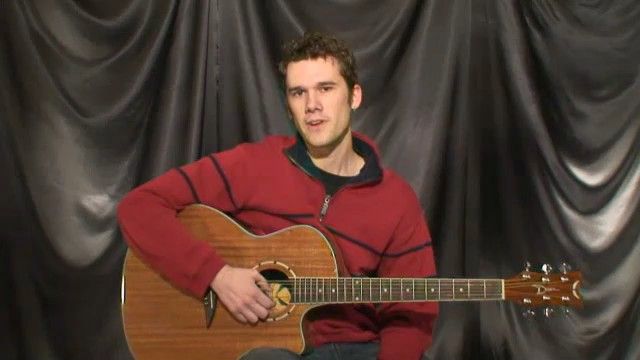As discussed in the introduction, there are 2 sides of the “hearing coin”. One side is Absolute Pitch (Color hearing pitch, perfect pitch, it has many names). What this entails is the ability to hear any note played to you, and be able to name that pitch correctly, even within chords. It also entails being able to think of any pitch, and then sing it correctly.
There are several misconceptions about this ability. One is that you need to be born with it, or you will never have it. That is wrong, anyone CAN develop absolute pitch, and there are tons of courses, classes and websites that teach the techniques for this. It just takes A LOT of time and effort, and for some people it might seem an insurmountable obstacle, and then it is easier just to refer to that you have to born with it, than to admit you are to lazy to do the work =)
I myself started music in my later teens, and only then picked up an instrument and ear training. I have developed a fair level of absolute pitch, although not as advanced as someone that has been born with the ability and the cultured from childhood. This is also something to remember, people that are BORN with this ability, have had their whole life to strengthen it and develop it, the rest of us, have only had a fraction of that time, and need to start from scratch, so of course there will a difference in ability until such time as you have truly developed you ear to its full potential.
Another misconception is that people with absolute pitch can sing any note perfectly! That is not so. A skilled SINGER can do this, but for the rest of us, the ability to correctly sing a pitch is limited by our vocal control. In my case, my voice wavers a lot (as you will hear in the video), since I never sing, have never trained my voice, and thus have limited control over my voice. (you should have heard me try to sing before I started ear training, NOT pretty!).
For me, and I think most people, it is easier to first focus on developing the relative pitch, and pawing the way with that, and then go for the absolute pitch,
So, what is relative pitch then? Well, as described in the video, it is the ability to hear and identify pitch relationships in music. Being able to correctly identify these things, also means you need to know the theory behind it. You might know the “sound” of a perfect fifth when you hear it, but if you do not know that a perfect fifth from B is F#, then you are lacking in musical awareness to some extent. Of course, you can play solely by ear all the time, if you ear is great enough, many people in history has done this (Holdsworth to name one, that didn’t know how to read music or theory, but had a great ear). However, for those of us not granted the genius of such as Allan, paring your hearing ability with theory is imperative.
Relative pitch, also means that you are able to discern not only individual intervals, but also chord sounds such as major, minor, or more advanced stuff. You should also be able to recognize the unique sounds of any given scale. You want to be ale to hear a chord, and not only know what it is, but also “hear” any type of scale-sound over that, be it theoretically “correct” or only something sounds good to your ear.
One you have relative pitch established it will be easier to develop a fair perfect pitch. This is why I recommend you start out with this. It is hard to just sit down and listen to pitch colors for ages, and trying to hear the differences between them Relative pitch will “open up” your ear, and make it more prepared for the much more subtle art of Absolute pitch.






















